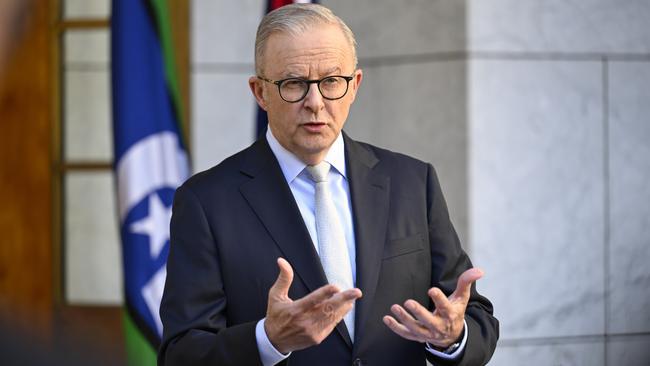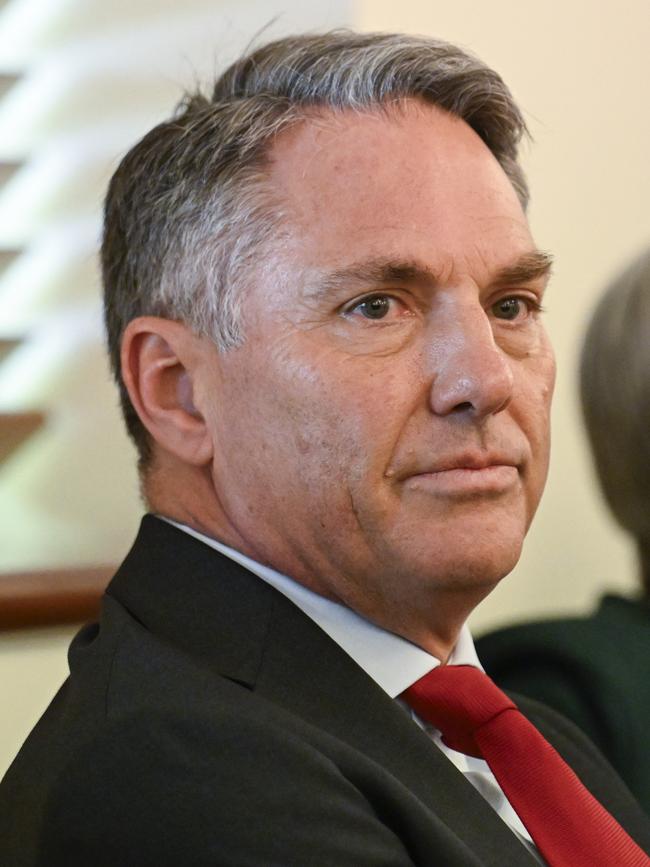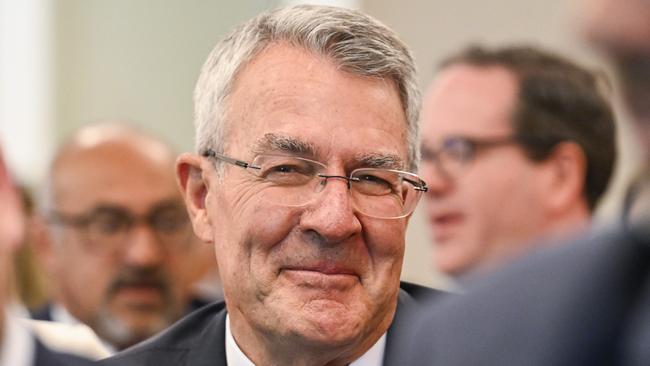Brutal factional power play tarnishes Labor’s extraordinary election victory
Anthony Albanese should have intervened to save both Ed Husic and Mark Dreyfus from factional execution.

British Labour prime minister Clement Attlee described the Australian Labor Party’s ministerial selection process where the caucus elected the members but the leader allocated portfolios as an “awful business” that was like fitting pieces “into the jigsaw”. Yet this is among the most important duties of a Labor leader in government and opposition.
The decision by Anthony Albanese to subcontract this role largely to sub-faction bosses who callously decided prematurely to end the ministerial careers of Mark Dreyfus and Ed Husic with reference to a complex series of mathematical calculations divided by tribal groupings in states and territories was not in the party’s interest or the national interest.
The subsequent fallout, in which Husic labelled Deputy Prime Minister Richard Marles a “factional assassin” who “wielded a factional club to reshape the ministry”, has tarnished Labor’s extraordinary election win and undermined the Prime Minister’s claim to lead a government marked by stability, continuity and unity. The glow of victory didn’t last long.
This was a moment that required prime ministerial and party leadership. Albanese has immense authority from the election victory but decided not to use it. He could have instructed faction leaders that they needed to come up with an alternative arrangement. Albanese, without hesitation, should have saved Husic and Dreyfus from the factional axe.
Many Labor leaders have appealed to faction bosses to deliver a ministry in line with several requests. In 1983, Bob Hawke persuaded caucus to allow an inner cabinet and outer ministry. After subsequent elections he saved ministers at risk and secured the promotion of others, including several women. Paul Keating elevated younger ministers to cabinet in 1993 and secured Kim Beazley as deputy prime minister in 1995.
Kevin Rudd, never tribal or respecting the traditions of the party, went too far and overturned more than a century of caucus rules by banishing elections altogether and took over the appointment of ministers and allocated their portfolios. It fostered resentment. Albanese is too shrewd to do that. But the point is that he could have reasoned with faction leaders.
Keating was absolutely right last week when he lashed the caucus and criticised the “factional displacement” of Husic. Keating, favoured son of the NSW Labor Right, said Husic’s expulsion was a display of “contempt for the measured and centrist support provided by the broader Muslim community” to Labor at the election.
Husic was the cabinet’s only Muslim. Faction “lightweights” also removed the cabinet’s “most effective and significant Jewish member” in Dreyfus, which Keating said was in “poor judgment” and “unfairness”. The only reason, he noted, was “to keep up some notional proportional count between factions and elements of the Right of the party between states”.
The Victorian Right, led by Marles, wanted an additional minister at the expense of the NSW Right, after tallying MPs aligned to each group. Keating noted Albanese had made several “captain’s calls” in preselection ballots, using his Left faction majority on the national executive to support his favoured Left candidate, but would not intervene in the ministry.


The process has left a bitter taste in the mouths of many caucus members, even those new to its ranks, perhaps unfamiliar with such a brutal exercise of factional power. Moreover, it has created a desire in the NSW Labor Right faction – still the largest group in caucus – for revenge. The time will come when this will be extracted.
Factions, highly organised and ruthlessly led, can play an important management and disciplinary role in the party. The party leader can rely on others to help organise MPs. After the election, the caucus has tilted to the Left for the first time since the 1970s but this may not last when new senators join in July. The ministry is divided into 15 from the Left, 15 from the Right.
Merit is never the sole criteria for promotion. Dreyfus and Husic have been replaced with Sam Rae and Daniel Mulino in the outer ministry. Rae is undistinguished in public life and is nothing more than a factional hatchet man. Giving him the aged care and seniors ministry may teach humility. Mulino is highly intelligent, has contributed to economic policy and is worthy of promotion to Assistant Treasurer and Financial Services Minister.
Dreyfus and Husic often clashed with ministers. They can be prickly to deal with. Dreyfus is typically arrogant and rude, dismissive of views that don’t accord with his own. Husic, also with a high opinion of himself, has long-simmering feuds with Jim Chalmers and Penny Wong. But there is no question Dreyfus and Husic should have been saved. Dreyfus would have quit parliament if he had known he would be dumped from cabinet. But Albanese refused pleas to intervene.

Ignore those who say this is simply the outcome of a democratic process. There is no democracy. The Labor caucus gave contested ballots the flick decades ago. Instead, faction bosses tally up the number of MPs aligned to their grouping and then the total ministry of 30 is carved up with the number of positions proportionally allocated to these subgroups. These groups rarely have ballots themselves any more. Caucus then endorses this ministry and the leader allocates portfolios.
Beyond the dumping of Dreyfus and Husic, there are few major changes in the ministry.
Tanya Plibersek moving sideways to the social services portfolio still denies full use of her talents. Murray Watt takes environment and water. Mark Butler adds NDIS to health and ageing. Michelle Rowland has been elevated to Attorney-General and Anika Wells gains communications. Tim Ayres and Anne Aly are worthy of promotion to cabinet.
Albanese has assembled a cabinet and outer ministry with experience and talent. But the power play by Marles and his Victorian Right faction was ruthless and unnecessary, and has taken the shine off Labor’s election result that vanquished the Liberal Party to near oblivion. Albanese will need to work doubly hard to reassure his party and the voters that he does lead a government with stability, continuity and unity.





